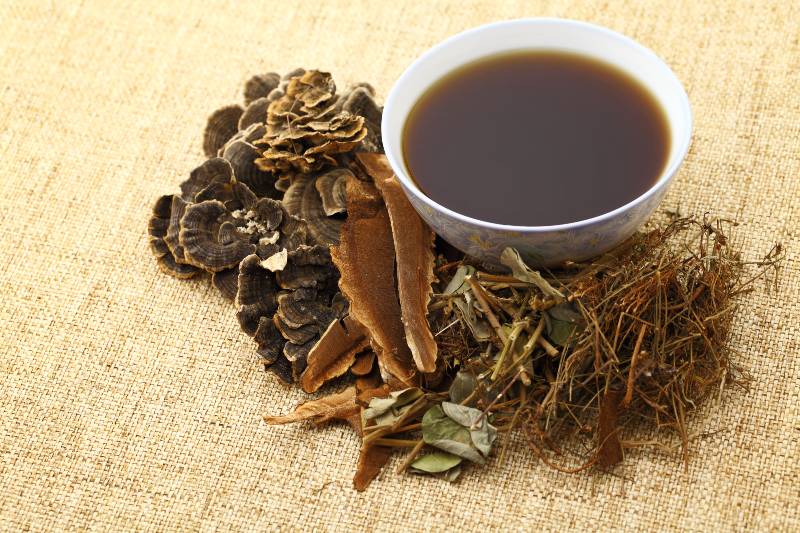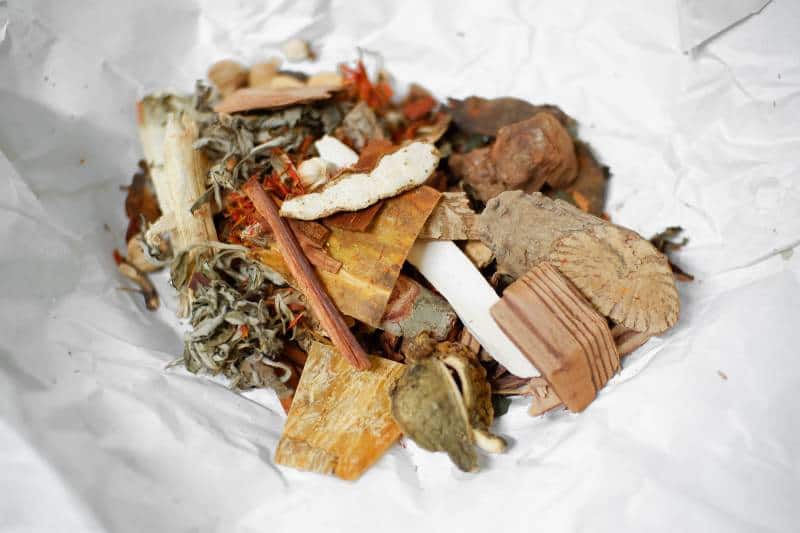A Journey through Thai Traditional Medicine
Are you familiar with the ancient healing practices and benefits of Thai traditional medicine? This rich folk tradition provides a wealth of insight into public health, well-being, and overall physical balance. From its interesting blend of herbs and spices to its holistic approach to healthcare that emphasizes harmony between body, mind, spirit and environment – experienced practitioners are sure to leave your feeling revitalized!
In this blog post we will be taking an in-depth look at some of the unique aspects that make up Thai traditional medicinal treatments so powerful. Stay tuned as we explore the possibilities hidden within these methods and uncover how they can help us fulfill our greatest potential for healthier lifestyles.
Traditional Thai medicine encompasses a wide array of indigenous practices and techniques, including herbal medicine, bodywork practices, and spiritual healing. Originating from the region we now know as Thailand, it is important to note that although not all Buddhist medicine is Thai, Thai medicine is regarded as a form of Buddhist medicine.
Key Takeaways
- Thai Traditional Medicine emphasizes balance and harmony, focusing on the whole person rather than just treating symptoms.
The practices and principles of Thai Traditional Medicine are deeply rooted in Thai culture, history, and spirituality.
Despite its ancient origins, Thai Traditional Medicine continues to be relevant, with many practices being integrated into modern healthcare.

Origins and Evolution
Dating back to over 3,000 years, the essence of Thai traditional medicine finds its origin in a syncretic mix of indigenous practices, spiritual beliefs, and the influence of Ayurvedic and Traditional Chinese Medicine. Long before the advent of Western medicine, the people of Thailand relied on the therapeutic potential of local flora and fauna to treat ailments and foster wellness. These remedies were profound expressions of the intricate understanding Thai people had of their environments—intimate knowledge underpinned by a deeply ingrained belief in the intrinsic balance between humans and nature.
Observing the impact of seasons on various aspects of life and health led to the development of traditionally rooted Thai health concepts, a holistic appreciation that represents humans as integral components within a larger sphere of natural order. These philosophies revolved around three primary elements, namely the “wind” (Lom), “water” (Nam), and “fire” (Fai) that governed the intricate dynamics of the human body. Essential to the harmonious functioning of life, these forces could, if misaligned, lead to imbalances and the manifestation of diseases.
The Influence of Neighbours: Cross-Cultural Melting Pot
Throughout history, due to geographical proximity, Thailand has experienced immense cultural exchanges with neighbouring countries like India, China, and Cambodia, significantly shaping the evolution of Thai traditional medicine.
With the spread of Buddhism from India during the third century BC, Ayurvedic practices were introduced into Thailand, profoundly enriching Thai medical wisdom. The Thai healing system absorbed Ayurveda’s fundamental principles, especially the concept of bodily humors (Doshas), and further incorporated them into their existing medical approaches. This amalgamation resulted in unique health philosophies that contained parallels to Ayurveda’s “Vata”, “Pitta”, and “Kapha” but were still intrinsically Thai, emphasizing the importance of balance amidst the elements of “wind”, “fire”, and “water”.
Another profound influence comes from Traditional Chinese Medicine which seeped into Thai practices through centuries of trade and cultural exchanges. Thailand adopted and adapted the Chinese philosophy of Yin-Yang, the five-element theory, acupuncture, and herbal remedies, blending them seamlessly with local wisdom. This resulted in uniquely Thai modalities such as foot reflexology and Thai herbal compress modalities.
Thai traditional medicine has always been a vibrant and evolving entity, continually moulding and adapting itself due to the consequential influence of neighbouring cultures and customs. It gives us a profound insight into how the exchange and integration of knowledge can lead to therapies and practices that have stood the test of time, offering an alternative path to holistic wellness that is just as relevant today as it was thousands of years ago. Through its past, we gain an understanding and appreciation of its future, an evolving tapestry of history, culture, and shared human wisdom.
Key Principles
At the core of Thai Traditional Medicine resides a philosophy deeply woven with the essence of nature, best exemplified by the principle of the four elements: earth, water, wind, and fire. This theory is the cornerstone of Thai health wisdom, seeing humans as replicas of the universe, miniaturized representations with an innate connection to the world.
The earth element (Din), representing the solid form, is often related to tangible structures in the human body such as bones, tissues, and other physical aspects. Meanwhile, the water element (Nam) refers to the ‘liquid functions’ of the body including blood circulation, digestive fluids, and metabolic activities.
Then there’s the wind element (Lom), it is associated with the body’s movement and transportation; like airflow in and out of the body, blood circulation, or the transmission of nerve signals. Lastly, the fire element (Fai) encapsulates the concept of transformation – body temperature, metabolism, and overall cellular energy production fall under its domain.
Thus, every human is seen as a home to these four elements, each possessing a crucial role to keep the wheel of life turning with its contribution. This quartet, as broad as it might seem, provides for a rather meticulous understanding of human life, an embodiment of nature itself.
Balancing Acts: The Quest for Harmony in Health
If there’s a single word to describe the underlying ethos of Thai Traditional Medicine, it would unquestionably be “balance”. The journey towards achieving and maintaining health, in this framework, consists of securing a harmonious equilibrium between these four elements. It is this harmony that determines the status of an individual’s wellbeing, and any disturbance is often perceived as the root cause of illness or discomfort.
Throughout Thai Traditional Medicine, there’s a constant emphasis on harmony, reflecting the broader societal and cultural landmarks that symbolize Thai civilization. Health in this tradition is seen as a balanced state, where the four essential elements within an individual are aligned, each performing their roles without disturbing the functions of the other elements.
Furthermore, this balance extends to the interpersonal level, and the interaction between humans and their environment comes into play. As such, taking a balanced diet, staying active, maintaining a routine, embracing positivity, and nurturing a harmonious social environment, all contribute to achieving this ‘perfect balance’.
Emphasizing the notion of equilibrium, Thai Traditional Medicine promotes a health approach that nurtures not just the physical body, but also addresses the mental, emotional, and social aspects of an individual. Its focus on balance and harmony creates a holistic and integrated approach towards wellness that has sustained its popularity and inherent value for centuries.
Common Practices
Central to Thai Traditional Medicine is the use of herbal medicine, a practice deeply rooted in Thai culture and lifestyle, and leaning on an exhaustive knowledge of local medicinal plants and their healing properties. From combating common colds with lemongrass tea to using turmeric in wound healing, herbs are prescribed in various forms—tinctures, powders, decoctions, and even incorporated into traditional recipes or daily diets. The utilization of nature’s pharmacy, so to speak, goes beyond mere symptom management. It aims to boost the body’s existing capacity to heal itself and maintain balance within its elements, thereby fostering overall well-being.
The Art of Healing: Thai Massage and its Therapeutic Benefits
The Thai traditional massage, or Nuad Bo’Rarn as traditionally known, represents one of the most recognized facets of Thai Traditional Medicine globally. This ancient bodywork therapy integrates acupressure, Yoga, and assisted stretching exercises, aimed at harmonizing the flow of vital life energy—known as “Prana” or “Chi”—through the body. The practice assists in releasing energy blockages, enhancing circulation, relieving musculoskeletal tension, and promoting overall relaxation. Instead of being a mere modality to alleviate physical fatigue, Thai massage is seen as a comprehensive healing approach—effective in boosting vitality, enhancing flexibility, and stimulating the body’s healing response.
Beyond the Seen: Spiritual Healing and Rituals
In the Thai Traditional Medicine framework, health transcends physical dimensions and delves into the spiritual and emotional realms of human wellness. Spiritual healing holds a prominent place in the Thai healing arts, often supplemented by rituals invoking Buddhist teachings, prayers, and meditation. These practices are vital in creating balance amidst the mind, body, and spirit, aiming to promote mental clarity, inner peace, and emotional resilience.
Practices like ‘Tam Boon’, a Buddhist merit-making ceremony, or ‘Wai Kru’, a ritualistic offering to thank teachers or professionals in certain crafts, are often embraced as acts of spiritual healing. Traditional practitioners might lead spiritually-infused healing sessions to ward off negative energies, address psychosomatic ailments, and foster positivity within individuals. Thai traditional healers are also well-versed in ‘Naad Kru’, a ritual to invoke the spirit of medicines before preparing any herbal concoctions.
These fascinating practices reflect how Thai Traditional Medicine moves beyond addressing the symptomatology and focuses holistically on the broader dimensions of health—physical, emotional, and spiritual. Their continued popularity underscores their intrinsic capacity to offer an alternative path to wellness and underline the intimate relationship between humans and nature at the heart of health.
Comparison with Western Medicine
At first glance, Thai Traditional Medicine and Western Medicine may appear as disparate systems of health practices. However, beneath the surface, they share some similarities that bridge the gap between the two modalities. Both systems endeavor to heal the sick and alleviate suffering, with a shared goal of restoring and promoting health.
Modern Western Medicine has adopted herbal medicines at varying degrees, recognizing the therapeutic benefits of nature’s pharmacopeia, a cornerstone in Thai Traditional Medicine. Moreover, both healing systems acknowledge the significance of a healthy lifestyle, integrating the importance of nutrition, exercise, hydration, and stress management as key components in maintaining well-being.
The Great Divide: Differences Between Thai Traditional and Western Medicine
Despite their commonalities, Thai Traditional Medicine and Western Medicine possess fundamental differences rooted in their origin, philosophies, and methodologies. Thai Traditional Medicine embodies a holistic, nature-based, and spiritual approach to health, emphasizing balance and harmony within the body’s elements, derived from ancient practices and cultural beliefs. It thrives on the interconnectedness of the human body, mind, and spirit, valuing the emotional and spiritual aspects of wellbeing as much as the physical realm.
Meanwhile, Western Medicine follows the scientific method, with its foundations in the principles of reductionism, specialization, and evidence-based practice. It focuses primarily on the diagnosis and treatment of diseases, leveraging pharmaceutical medications, surgery, and advanced technologies. Owing to its analytical perspective, it tends to treat the body as a collection of separate systems and addresses ailments by targeting specific symptoms or causes.
Walking Hand-in-Hand: Integrating Both Modalities in Modern Thai Healthcare
In today’s world, Thai Traditional Medicine and Western Medicine have made strides in coexistence, providing a more comprehensive approach to healthcare, particularly in Thailand. Integrative medical practices have begun to acknowledge the benefits of embracing elements from both modalities, fostering synergistic healing strategies for modern society.
Traditional Thai healing practices—such as herbal medicine, massage, and meditation—are increasingly being integrated into mainstream medical care. Hospitals and clinics incorporate these practices alongside conventional treatments, offering patients a multifaceted approach to addressing their health concerns. Thai Traditional Medicine has also found its way into preventive care and health promotion initiatives, providing patients with methods to maintain balance and harmony in their daily lives.
This harmonious blending showcases a fresh perspective in healthcare, embracing the strengths of both Thai Traditional Medicine and Western Medicine in providing compassionate, evidence-based care that addresses the physical, mental, and spiritual well-being of individuals. The dynamic interplay and fusion of these two healing systems exemplify the advantages of mutual understanding, a testament to the ever-evolving nature of health practices that benefit not only the Thai populace but also the wider global community.
Benefits and Limitations
Thai Traditional Medicine brings forth numerous benefits, enriching not just physical but also mental and spiritual dimensions of health. The following are some notable advantages of this ancient healing practice:
- Holistic and Preventative Approach: Thai Traditional Medicine adopts a holistic view of health, taking into account the interconnected relationship between the body, mind, and spirit. This broader perspective enables the identification and mitigation of health risks before they manifest as illnesses or chronic conditions.
- Alignment with Nature: Rooted in natural remedies, Thai Traditional Medicine encourages an organic, eco-friendly means of addressing health concerns. Herbal medicines, which come with lower side-effects and lesser ecological impacts compared to synthetic drugs, present an alternative line of treatment.
- Attuned to Local Culture: With a deep connection to Thai customs, beliefs, and traditional knowledge, Thai Traditional Medicine fosters a sense of cultural identity, pride, and continuity, which may enhance the overall therapeutic experience of patients.
- Affordability and Accessibility: Traditional practices and herbal remedies may circumvent the financial burden and accessibility constraints commonly tied to conventional healthcare, particularly in rural areas where resources and services are scarce.
- Complementary Practices: Thai Traditional Medicine complements Western Medicine by offering additional options for patients, such as Thai massage, herbal therapies, and mindfulness techniques, that can improve their overall experience and promote long-term well-being beyond immediate symptom relief.
The Flip Side: Potential Drawbacks and Misconceptions in Thai Traditional Medicine
Despite its numerous advantages, Thai Traditional Medicine is not without limitations and misconceptions, which include:
- Lack of Scientific Rigor: Many traditional therapies lack well-documented clinical trials and research required to verify their efficacy and safety. This dearth of evidence makes it difficult to assess the true potential of some herbal remedies or traditional practices, potentially exposing patients to risks.
- Standardization and Regulation: The quality of Thai Traditional Medicine can be variable and inconsistent, as practices and herbal resources might differ between practitioners or locations. The absence of stringent regulatory and standardized manufacturing controls can lead to safety concerns and unreliability.
- Overemphasis on Spirituality: Although spirituality is an essential part of Thai Traditional Medicine, excessive emphasis on supernatural causes of illness might undermine the importance of accurate diagnosis and proper medical treatments. Patients who rely solely on spiritual methods may unwittingly delay or avoid necessary clinical interventions.
- Misconceptions and Misuse: Inaccurate information and a lack of understanding about the safe use of Thai Traditional Medicine can lead to misuse, faulty expectations, or exacerbated health issues. For instance, excessive consumption of some herbal remedies may trigger undesirable or harmful side effects.
Ultimately, Thai Traditional Medicine possesses both benefits and limitations. The key to maximizing its advantages and minimizing its drawbacks lies in fostering well-informed choices, undertaking rigorous research, and embracing a balanced and integrative healthcare approach that sensitively incorporates both Thai Traditional Medicine and Western Medicine principles.
Future of Thai Traditional Medicine
In recent years, there has been a resurgence of interest in exploring the scientific potential of Thai Traditional Medicine, as evidenced by numerous modern research efforts and studies. At the forefront, efforts target examining the therapeutic efficacy and safety profiles of various herbal remedies. By subjecting these remedies to extensive scientific scrutiny, it is possible to validate their healing properties, uncover novel medical applications, and, subsequently, facilitate their broader acceptance within the healthcare sphere.
Ongoing research delves into the wealth of knowledge embedded in Thai traditional healing practices, seeking to identify and isolate active compounds contained in numerous herbs, roots, and other botanical ingredients. These studies aim to enhance our understanding of these natural potions’ mechanisms of action and pave the way for potential development of new pharmaceutical treatments.
In addition, the therapeutic benefits of Thai massage, mindfulness techniques, and meditation are being examined by researchers keen on substantiating their wellness potential. By unearthing evidence that supports their efficacy, these traditional modalities can become a more integral part of standard medical care, contributing to improved patient outcomes.
Bridging the Gap: Integrating Thai Traditional Medicine in Modern Healthcare Practices
An emerging future trend involves blending the strengths and wisdom of Thai Traditional Medicine with established modern healthcare practices. This can be achieved through various approaches, including:
- Implementing Integrative Healthcare: Encouraging the incorporation of Thai Traditional Medicine into mainstream healthcare, where traditional practices commingle with contemporary medicine to provide a cohesive care plan. Hospitals and clinics may offer herbal medicine consultations, Thai massage, meditation, or other ancient healing practices alongside conventional treatments, emphasizing the complementary strengths of both approaches.
- Building an Interdisciplinary Workforce: Fostering collaboration and communication between traditional Thai practitioners and modern healthcare professionals, enhancing the exchange of knowledge and skills, and progressing towards a multidisciplinary, patient-centric healthcare system.
- Creating Standardization and Regulation: Implementing regulatory and quality control measures for herbal treatments, traditional practices, and their practitioners plays a crucial role in the future growth, credibility, and safety of Thai Traditional Medicine. Standardization efforts should encompass ethical sourcing, production protocols, and professional qualifications to ensure the consistent quality and safety of traditional practices.
- Promoting Education and Research: The establishment of dedicated academic programs, research institutions, and continuing education is essential in fostering a deeper understanding of Thai Traditional Medicine. Encouraging scientific research and promoting culturally-relevant education helps create an environment where traditional knowledge thrives alongside modern scientific exploration.
The future of Thai Traditional Medicine is one of growth and integration, reflecting a harmonious coexistence between traditional wisdom and modern scientific methodologies. As research and integration efforts advance, society will be better equipped to embrace and utilize the full spectrum of therapeutic possibilities offered by this ancient system of healing, creating a more comprehensive, versatile, and holistic healthcare landscape.

Thai Traditional Medicine FAQs
What are the origins of Thai Traditional Medicine?
Thai Traditional Medicine has its roots in ancient healing practices developed by local healers and practitioners. These practices are based on the belief that health problems stem from imbalances of energy and flow within the body, and can be addressed through holistic treatments such as herbal remedies, massage therapy, meditation, dietary modifications, and spiritual rituals.
How does Thai Traditional Medicine differ from Western medicine?
Western medicine is a modern system of healthcare that relies heavily on evidence-based scientific findings, diagnostic tools, and pharmaceutical treatments. In contrast, Thai Traditional Medicine upholds an ancient world view that emphasizes the interconnectedness of body, mind, and spirit in achieving wellness.
What are the core principles of Thai Traditional Medicine?
The core principles of Thai Traditional Medicine include the belief that life energy (or qi) flows through all aspects of life; that health and wellness depends on maintaining balance between body, mind, and spirit; and that illness can be treated by restoring this balance.
What are the common practices in Thai Traditional Medicine?
Common practices in Thai Traditional Medicine include various herbal remedies, massage therapy techniques, dietary modifications, mindful meditation or yoga exercises, and spiritual rituals. These practices are focused on restoring harmony between body, mind, and spirit to promote physical and emotional well-being.
What are the potential benefits of Thai Traditional Medicine?
The potential health benefits of incorporating Thai Traditional Medicine into one’s lifestyle include improved mental and emotional health, reduced stress levels, enhanced relaxation, improved immunity against illnesses, and increased energy. Many studies suggest that regular practice of Thai Traditional Medicine can lead to improved overall health.
Conclusion
Thai Traditional Medicine has a long and diverse history that is deeply rooted in the culture of Thailand. Its holistic approach to health achievement emphasizes both physical and mental harmony – something much needed in the modern world. In this article, we have discussed how Thai Traditional Medicine has been maintained through generations, integrated into modern healthcare, and is still relevant today.
Now more than ever, its ancient principles could be beneficial worldwide. If you’d like to learn more about living in Thailand or discover even more aspects of its traditional medicine, subscribe to our newsletter today. Or reach out to us with any questions you may have regarding Thai Traditional Medicine and how we can help you find balance and healing.






